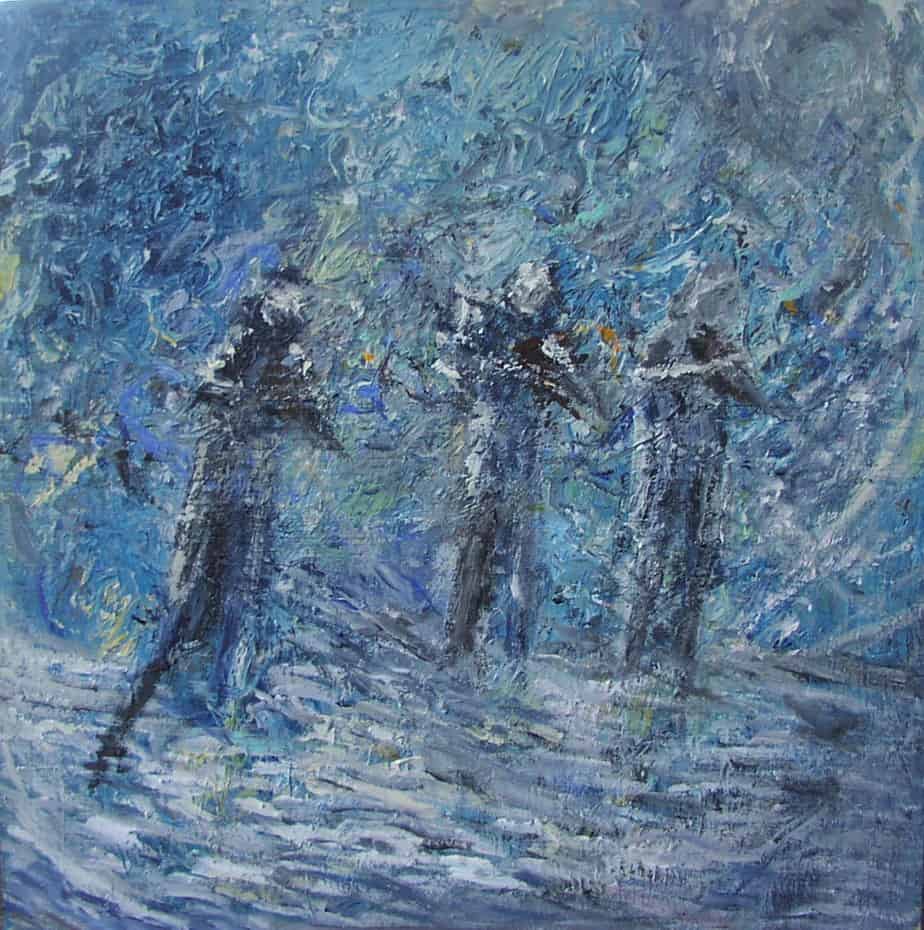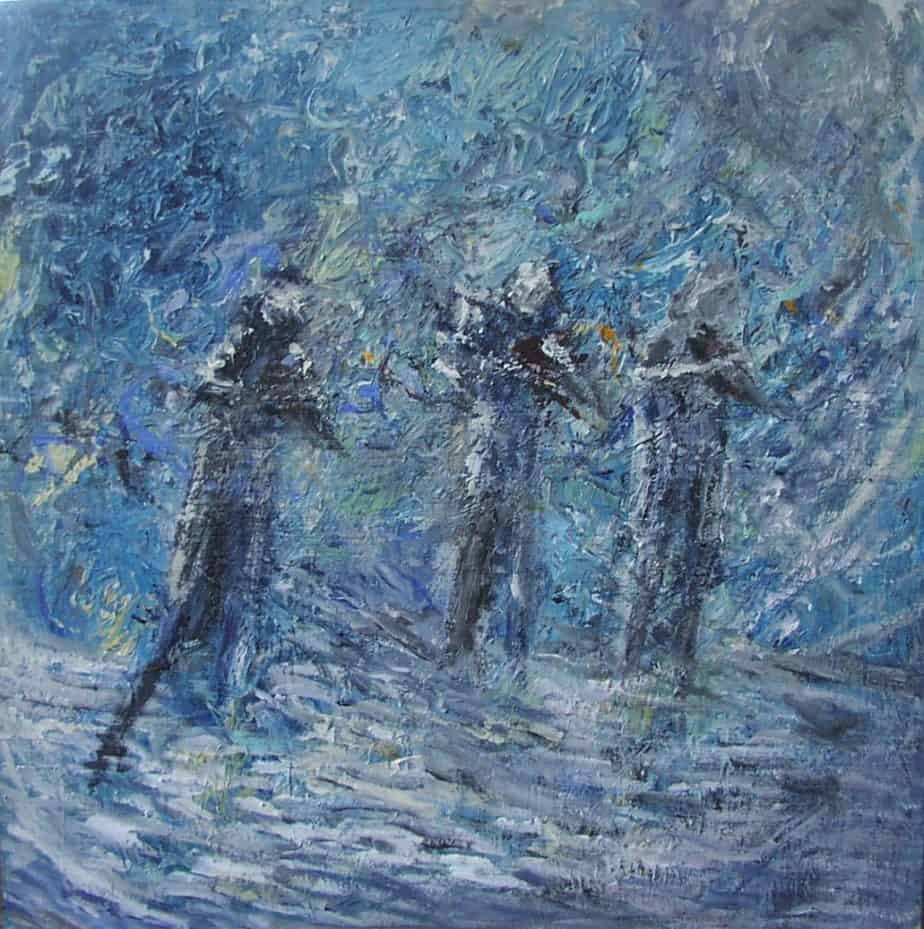In my field of history of religions we often speak of a kind of written/unwritten “Master Narrative” that is taken as an assumed “given,” laying out fundamental values, assumptions, goals, and directions—with prescriptions of human purpose, place, and meaning. Sometimes it might be represented in a single literary work. For example, in my field often called “Christian Origins,” the Book of Acts in the New Testament becomes the master narrative for understanding early Christianity. Of course historians regularly attempt to question, poke at, and even dismantle such singular and simplistic stories of “the way things were.” My colleague at Notre Dame in the 1980s, Robert Wilken, lays out the parameters of such a critique in his classic 1971 work, The Myth of Christian Beginnings.[1]In this challenging and vividly written book Dr. Wilken shows that there never was a golden age in the Christian past. Christian hope did not come to fulfillment in the age of apostles, nor in the … Continue reading
Diversity and complexity are perhaps the most persistent realities of human experience—individual as well as collective—and the latter is of course amplified infinitely. Hitler had a “master story” that ended up moving masses to give their “last full measure of devotion” to a morally bankrupt vision of German’s future. The master narrative of American history for my post 1946 generation was imbibed in our mother’s milk growing up in the 1950s—the land of the free, home of the brave, you can be anything—all the Jeffersonian ideals and phrases. With some peanuts and crackerjacks thrown in.
Left out were the obvious. The corruptions and graft of all governments and systems of authority—including “democratic” ones. I just watched Oliver Stone’s new and chilling documentary, “JFK Revisited: Through the Looking Glass.” The new evidence left me stunned and horrified. Ken Burns has shown us all, perhaps more than any single filmmaker, countless examples of our failures and folly. But so much was driven by our imagined “master narrative”–from the horrors of slavery and its afterlives, and that tale of tales—the conquering of the “ Wild West,” with native Americans pushed into “tiny spaces” and basically eliminated. Playing “cowboys and Indians” was as common as “Hide and Go Seek” in my 1950s white suburban upbringing. The Lone Ranger’s fight was for justice, truth, and the American way . Okay, well, true, there was Tonto.
And then there is that tragically embedded “master story” that humans are to “have dominion” over the earth and it creatures “great and small,” who can then be used and abused from birth to death for our dining pleasures–or driven to extinction by our disruptions on land and sea. After all, the Bible tells me so. At least Adam and Eve in the garden of Eden are given only plants to eat, but in the post-Flood world God grants humans permission to shed the blood of “every moving thing” (Genesis 1:29; 9:3). Aronofsky presents this in such a moving way in his film “Noah.” [2]See my blog post “Basher of the Noah film Need to Read their Bibles.”
Talk about smashing all master narratives. Arthur Koestler is surely one of our prime 20th century figures whose intellectual and political meanderings from 1926-1986 illustrate the process–from Darkness at Noon to Janus. [4]I am currently reading the marvelous 700 page biography by Michael Scammell, Koestler: The Literary and Political Odyssey Of a Twentieth-Century Skeptic (NY: Random House, 2009), see the New York … Continue reading From Koestler’s disengagement from Zionism in Palestine under the spell of Jabotinsky, to his imprisonment by Franco in the Spanish Civil war, through his disenchantment with Stalinist Communism in Russia, and the horrors of Hitler’s invasion of Europe from which he barely escaped–the lesson was clear. Fascism is fascism by any name and in numerous garbs. His insightful novels and essays from the 1920s up through the end of WWII with its post-War rebuilding of democracies, at home or in colonial extensions, explore a singular issue: the struggle between “ends” and “means.” He had been on the wrong end of that rope pull initially but finally ended up affirming that ends must never justify means—but always would end up doing so. Even in our daily individual choices we find that human place on planet earth is too complex for anyone to find a “clean place” to stand. Darkness at Noon becomes our extended experience. [5]Isn’t it more than ironic that the US House of Representatives has a “Ways & Means” Committee. One wonders if they might be able to sort out this eternal conumdrum

References
| ↑1 | In this challenging and vividly written book Dr. Wilken shows that there never was a golden age in the Christian past. Christian hope did not come to fulfillment in the age of apostles, nor in the time of Constantine, nor in the Middle Ages, nor during the Reformation, nor in the revivals of the 19th century, nor in the movements of renewal in our own time. Another such classic is Walter Bauer, Orthodoxy and Heresy in Early Christianity, also published in 1971. I was recently made aware of Jonathan Gottschalls’s new book, The Story Paradox: How our Love of Storytelling Builds Societies and Tears them Down. He argues that there is a dark side to storytelling we can no longer ignore. Storytelling, the very tradition that built human civilization, may be the thing that destroys it. His proposal is that we stop asking, “How we can change the world through stories?” and start asking, “How can we save the world from stories?” I have it on my list for future reading |
|---|---|
| ↑2 | See my blog post “Basher of the Noah film Need to Read their Bibles.” |
| ↑3 | https://www.theatlantic.com/magazine/archive/2021/11/graeber-wengrow-dawn-of-everything-history-humanity/620177; https://www.newyorker.com/magazine/2021/11/08/early-civilizations-had-it-all-figured-out-the-dawn-of-everything; https://www.nytimes.com/2021/10/31/arts/dawn-of-everything-graeber-wengrow.html |
| ↑4 | I am currently reading the marvelous 700 page biography by Michael Scammell, Koestler: The Literary and Political Odyssey Of a Twentieth-Century Skeptic (NY: Random House, 2009), see the New York Times review here. |
| ↑5 | Isn’t it more than ironic that the US House of Representatives has a “Ways & Means” Committee. One wonders if they might be able to sort out this eternal conumdrum |



